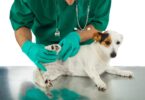My mom is a vet tech herself, so I knew what I was getting into when I decided to become a veterinary technician. I’d been around animal care long enough to know that caring for them isn’t all cuddles and Awww.
There are messes, heartbreaks, and joy all interwoven together in this bond we share with the pets we care for.
In fact, any friend or family member who asks me how their kid can become a vet tech or a veterinarian, I tell them to read this book first.
What do vet techs really do?
The following list is just a few of the things that nobody tells you about becoming a veterinary technician, especially your career counselor.
It’s important to weigh these things carefully before you undertake such a rigorous career path and sign the dotted line for financial aid, even if your veterinary education path is via the increasingly popular online vet tech programs.
Contents
- 1 1. You Won’t Always Cry During Euthanasias
- 2 2. Emergencies Always Happen at 4:50 PM on Fridays
- 3 3. Not Everyone Loves Their Pet Like You Do
- 4 4. You’ll Almost Never Have a Peaceful Lunch
- 5 5. It’s Not Always the Big Dogs Who Will Bite You
- 6 6. Get a Morbid Sense of Humor
- 7 7. You Might End Up Saving People, Too
- 8 8. You Have to Like People
- 9 9. Clients Will Give Vets All the Credit
- 10 10. You’ll Trust Your Vet With Your Own Life
- 11 A Personal Choice
1. You Won’t Always Cry During Euthanasias
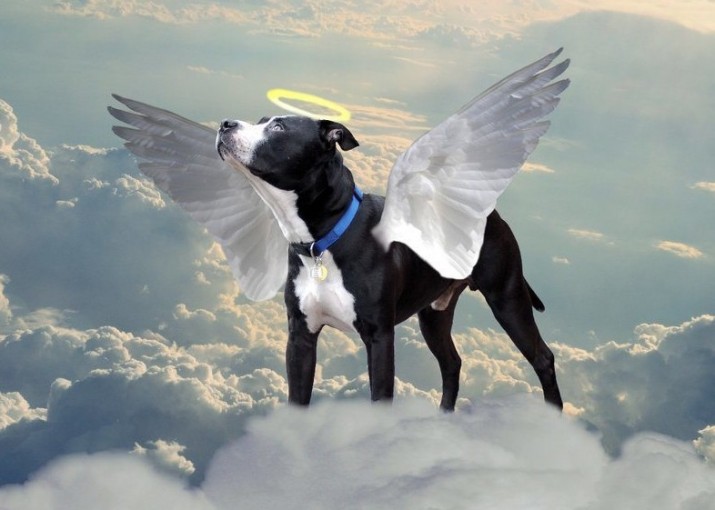
All Dogs Go To Heaven: Source
Your first twenty or thirty euthanasias will be devastating. You’ll feel the raw heartbreak your client does, and your eyes will leak as many tears as the owner’s.
It won’t always be this way.
It doesn’t mean you’ve gotten hard or have no heart; it simply means that you are eventually hit with so many chances to be emotionally overwrought that you have to pick which situation you are able to get emotionally invested in.
Some euthanasias, no matter how many you’ve assisted in, will leave you sniffling tears for the rest of the day. Others will make you sad, but they don’t make you cry. Accept that this is okay.
You can’t be emotional over every patient that doesn’t survive or you won’t survive.
2. Emergencies Always Happen at 4:50 PM on Fridays
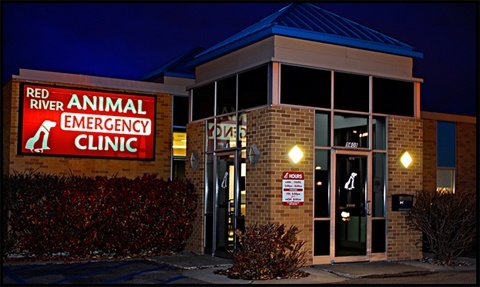
Red River Animal Emergency Clinic in Fargo, North Dakota.
Friday is every working person’s favorite day of the week. You’re ready for the weekend, sleeping in, and spending time with your own pets. But wait! You hear the door open and a panicked voice filtering in from the front office.
You cautiously approach, and yes! It is exactly what happened last Friday: an emergency!
While you’ll get legitimate emergencies, you’ll learn that a lot of clients wait until closing time on Friday to finally believe their dog needs medical treatment.
Any technician that worked in a clinic for more than a month has a story of an owner bringing their dog in with vomiting and diarrhea that has to be seen right now on Friday at closing time.
When you ask how long they’ve been experiencing the vomiting, they’ll say, “Oh, a week, I think?”. For a lot of clients, it’s not an emergency for the dog until it’s an emergency for the owner.
Note: Speaking of K9 emergencies, do you have a first-aid kit? I highly urge you to get one or just make one.
3. Not Everyone Loves Their Pet Like You Do

Feeling the love?
It would make the day of every veterinary professional to have clients who love their pets like family, and you will have a lot of those clients. In fact, the majority of your clients love their animals as much as you do.
Unfortunately, you will also have clients that view their animals as property and aren’t as passionate about their health as you are.
- They won’t vaccinate, then expect cheap or free treatment for their puppy’s parvo.
- They’ll decline pain medication after a spay or neuter because they think animals don’t feel pain.
This part of your job will never go away!
Eventually, you learn you can’t save every animal or educate every owner, and you put that energy into the owners who are able to care like you do.
4. You’ll Almost Never Have a Peaceful Lunch

Mmmm… The gourmet lunch: coffee, sugar, and carbs.
Quiet lunches where you can sit and enjoy your meal are few and far between. Between surgeries running late, IV catheters needing replaced, and emergencies, there are many days where you’re shoveling down a sandwich while you run bloodwork or monitor a post-surgical patient.
There are also many days where you won’t even have time to eat or take a much-needed break.
On those days you’re so busy that you won’t even realize your stomach is rumbling or your bladder is bursting from that fourth cup of coffee.
5. It’s Not Always the Big Dogs Who Will Bite You

Watch out for the angry Chihuahua!
In this line of work, you’ll be bitten. It can happen from an aggressive dog, a fearful cat, or an animal waking up from anesthesia. If you want to go into large animal medicine, remember that horses bite, too!
When it comes to dogs, there’s a misconception that it’s the “aggressive” breeds like pit bulls or German shepherds that are most likely to inflict harm.
You’ll very quickly learn that it’s the tiny dogs that you should watch out for.
I’ve been bitten exactly three times in my career and all three of those bites came from toy breeds like Chihuahuas and Miniature Pinschers. In my experience, the larger the dog, the wimpier they are! The tiny Chihuahua will be going for your face while the big Mastiff is cowering under his owner’s chair.
6. Get a Morbid Sense of Humor
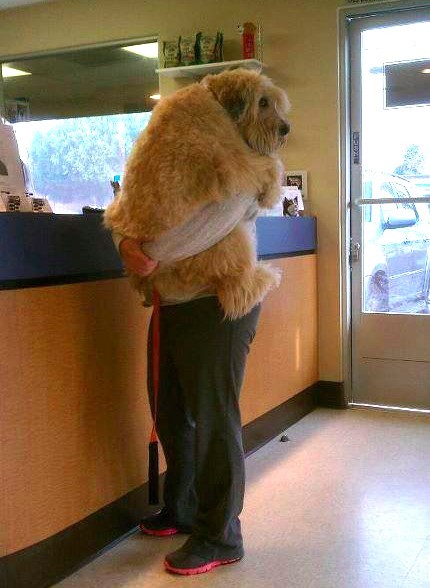
Or just enjoy the really funny ones!
Lots of stuff is going to traumatize you to a degree, and eventually you learn you need to have a sense of humor to keep from burning out. When I was an intern, one of my superiors, who we’ll call Dan, had this irrational fear that when we put deceased animals in a body bag, they weren’t really dead.
After a particularly long night, we put the smallest tech on staff inside an extra-large body body and called Dan back to help us lift this huge “dog” into the freezer.
When he bent over to grab the bag, the girl in the bag popped out and yelled “I’m not dead!“.
He screamed like a girl, kicked her in the stomach out of fear, and disappeared. We all died of laughter (no pun intended). If you aren’t a technician, you’ll find this mildly disturbing. If you do, I promise you’ll get to this point. Just consider it self-preservation.
7. You Might End Up Saving People, Too

Isn’t she beautiful?
I’ll never forget when I worked in an emergency clinic and a small white dog came in because he was urinating blood. After one of our assistants interviewed the owner, it came to light that her husband was mad the dog had gotten into the trash and proceeded to beat him with a cord from a lamp.
We called the Humane Society, and they sent over a female officer. She then interviewed the owner and she broke down in the room saying her husband had a history of hitting her and he beat the dog to hurt and frighten her.
The Humane Society officer then called the police, and the woman and her daughter ended up getting a restraining order against the husband.
I’m not sure what happened to her, but I hope it ended well for her and her dog (that she really did love deeply).
Always remember that no matter what things look like on the surface, there’s always more to the story. Don’t judge until you see what’s underneath.
8. You Have to Like People

You don’t need to give free hugs to strangers but you do need to like people.
On my first day of veterinary technician school, we had to stand up and share with the room why we wanted to be vet techs. I don’t remember what answer I pulled off my head at the last minute, but I do remember that 90% percent of the people in the room said they wanted to do this because they don’t like people.
Out of the corner of my eye, I watched the instructors–seasoned veterinarians and technicians alike–exchange knowing glances. Once everyone had their turn, they told us that if we didn’t like people, we were absolutely in the wrong career.
Here are a few scenarios you will deal with on a daily basis:
- Your job will revolve around people. It always will. Dogs and cats don’t meander into the clinic unaccompanied. They’re brought in by people who either love them or view them as property.
- You’ll have clients who take up an hour of your time discussing the best dog food diets for their pup, while others will take up your entire shift demanding you perform expensive treatment for free “because you love animals”.
- You’ll be answering phones, comforting people during euthanasias, and getting yelled at.
If you don’t have the patience to deal with humans at their worst, then you shouldn’t be in this job. Patience and compassion for people in every circumstance will make or break how long you last in this field. If your main feeling towards humans is disgust, walk away.
9. Clients Will Give Vets All the Credit
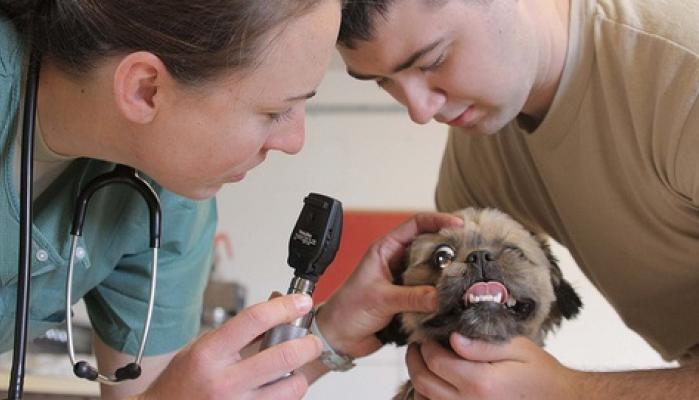
Vets get all the credit.
Vets do their fair share of work and burden their own stressful loads. But a lot of the duties of caring for the four legged patients falls on you.
You administer medications, monitor anesthesia, wake animals up from said anesthesia, closely watch fluid administration, and comfort dogs who just want out of their kennel.
You play a major role in the care of animals, but clients often won’t give you the recognition you deserve.
I’ve returned numerous animals into their joyous owner’s arms after investing 20 or more hours into that animal, only to be brushed aside while the client weeps their thanks on the vet’s shoulder.
I’d be lying if I said it didn’t make me a little bitter, but this also goes in hand with working for a good vet. Even if the clients don’t know what you did for their pet, your vet will give you all the credit you deserve.
10. You’ll Trust Your Vet With Your Own Life
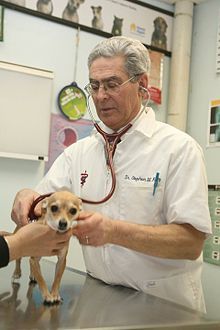
Working with a good physician is critical to a happy work environment.
You might go into your career thinking that your vet will be nothing more than your boss. After you work endless shifts with your vet, save countless lives together, and get covered in a variety of bodily fluids together, you’ll start to view your veterinarian as your friend.
You’d be surprised how much bonding can go on over an open abdomen of a Doberman.
Or the team effort needed as you’re on the floor struggling to change the bandages of a restless St. Bernard.
I’ve worked with a lot of vets, and the best ones are people I’d trust to operate on my pets. As a whole, the veterinary team definitely becomes more like family and less like coworkers over time. I hope to have lifelong relationships with the vets I’ve worked and commiserated with.
A Personal Choice
When I made the decision to make animal care my career, I was probably already a bit jaded to some degree. I knew what I was getting into.
Of course, it didn’t help that I was fueled with anger at irresponsible and probably drunks that shoot and injure deer with their bows, watching them stumble and collapse in our front yard lawn.
Don’t get me wrong, I have a great amount of respect for hunters. Both me and my husband regularly go on weekend trips crossbow hunting during the fall. But seeing that made a dramatic impression on me at an early age, which is probably another reason I wanted to become a veterinary technician.
Everyone has predisposed notions about things they aren’t entirely knowledgeable about, and it’s these notions that can lead to disappointment when making a career change.
If it isn’t for you, there are plenty of other ways to spread your love of animals without the gory day to day activities.
If it is the career for you, then you’ll be leaping out of bed each morning with a smile. I know I do. 🙂
If you want to share this list on your site I also made this infographic to go along with it. Thank you!




